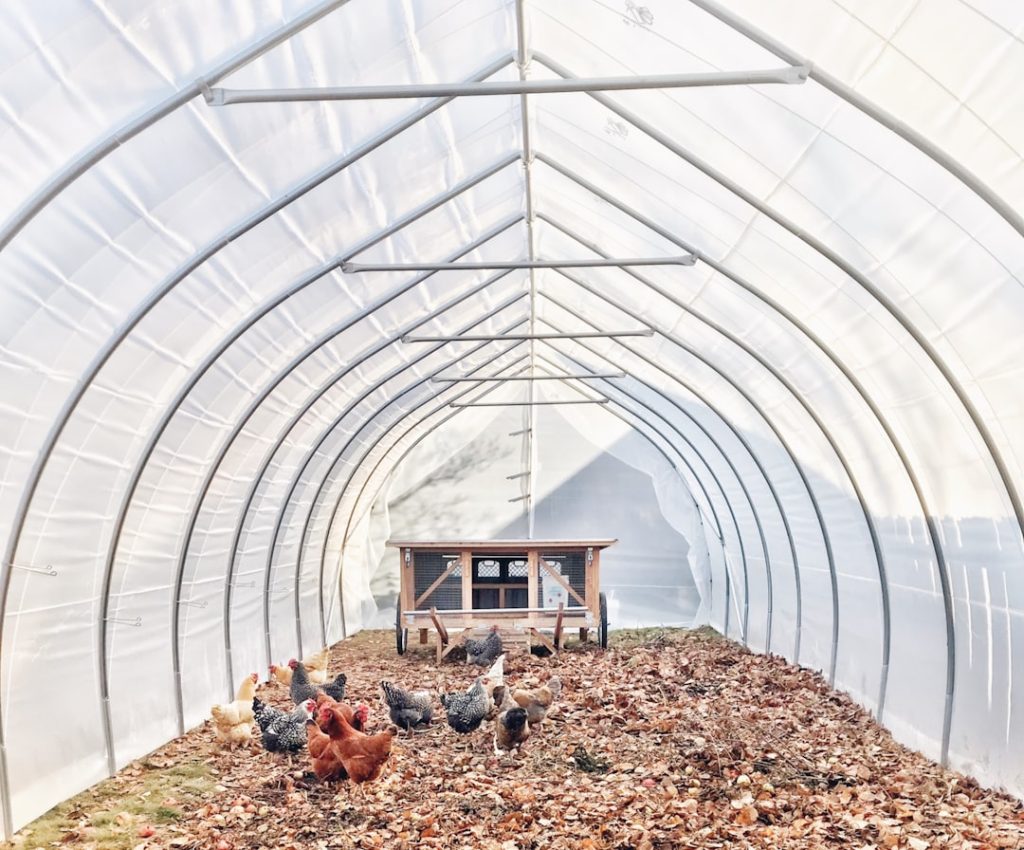Cats and chickens possess distinct behavioral patterns and instincts. Felines are natural predators with a strong prey drive, often attracted to smaller animals like chickens. They are also territorial creatures that may view chicken coops as part of their domain, particularly if allowed unrestricted access.
Chickens, conversely, are social birds that establish a hierarchical structure within their flock. They are easily startled and can experience stress when exposed to potential predators, including cats. Cats are renowned for their agility and stealth, attributes that contribute to their hunting prowess.
They may perceive chickens as prey and attempt to capture or kill them. Furthermore, felines are inquisitive animals that may be drawn to the various sensory stimuli emanating from chicken coops. Chickens have an innate tendency to scratch and peck at the ground in search of food.
They are prone to being frightened by sudden movements or loud noises, which can be triggered by a cat’s presence. Comprehending these behavioral traits is essential for developing effective strategies to keep cats away from chickens and ensure the safety and well-being of both species.
Table of Contents
- 1 Creating a Secure Chicken Coop
- 2 Using Deterrents to Keep Cats Away
- 3 Providing Alternative Distractions for Cats
- 4 Establishing Boundaries and Training
- 5 Monitoring and Supervising Interactions
- 6 Seeking Professional Help if Necessary
- 7 FAQs
- 7.1 What are some effective ways to keep cats out of the chicken coop?
- 7.2 Why is it important to keep cats out of the chicken coop?
- 7.3 Are there any natural deterrents that can be used to keep cats away from the chicken coop?
- 7.4 What should I do if I find a cat in the chicken coop?
- 7.5 Can I train my cat to stay away from the chicken coop?
Key Takeaways
- Cats and chickens have different behaviors and instincts that need to be understood in order to keep them safe and happy together.
- A secure chicken coop is essential for protecting chickens from potential harm by cats and other predators.
- Using deterrents such as motion-activated sprinklers or ultrasonic devices can help keep cats away from the chicken coop.
- Providing alternative distractions for cats, such as toys and scratching posts, can redirect their attention away from the chickens.
- Establishing boundaries and training both cats and chickens can help create a harmonious and safe environment for them to coexist.
- Regular monitoring and supervision of interactions between cats and chickens is important to ensure their safety and well-being.
- Seeking professional help from a veterinarian or animal behaviorist may be necessary if there are persistent issues with cats and chickens cohabitating.
Creating a Secure Chicken Coop
Constructing a Secure Coop
The coop should be well-constructed and free from any potential entry points for cats. This means having a solid roof and walls to prevent cats from climbing or jumping in.
Securing Doors and Windows
All doors and windows should be securely closed and latched at all times to prevent any unauthorized entry. This will ensure that cats cannot find a way into the coop.
Protecting the Coop Floor and Surroundings
The coop should have a solid floor that is either made of concrete or buried wire mesh to deter any digging attempts by cats. Additionally, it’s essential to keep the area around the coop clear of any debris or overgrown vegetation that could provide hiding spots for cats. By creating a secure chicken coop, you can significantly reduce the risk of cats getting access to your chickens and ensure their safety.
Using Deterrents to Keep Cats Away

In addition to securing the chicken coop, using deterrents can be an effective way to keep cats away from chickens. There are various methods and products available that can help deter cats from entering the coop or the surrounding area. One common deterrent is the use of motion-activated sprinklers or ultrasonic devices that emit a high-frequency sound when they detect motion.
These devices startle cats and discourage them from coming near the chicken coop. Another effective deterrent is the use of natural repellents such as citrus peels, coffee grounds, or lavender oil, which cats find unpleasant and will avoid. These can be strategically placed around the perimeter of the coop to create a barrier that cats are less likely to cross.
Additionally, physical barriers such as fences or chicken wire can be installed around the coop to prevent cats from gaining access. By using deterrents, you can create an environment that is less appealing to cats and reduce the likelihood of them bothering your chickens.
Providing Alternative Distractions for Cats
Cats are curious and active animals that need mental and physical stimulation to thrive. By providing alternative distractions for cats, you can redirect their attention away from the chicken coop and reduce their interest in bothering the chickens. One way to do this is by creating an enriching environment for your cat with toys, scratching posts, and climbing structures.
These items can keep your cat entertained and engaged, reducing their desire to seek out other sources of stimulation, such as chasing chickens. Another effective method is to provide your cat with interactive playtime and regular exercise. Engaging your cat in play sessions with toys like feather wands or laser pointers can help satisfy their hunting instincts in a controlled environment.
Additionally, providing opportunities for your cat to explore and exercise outdoors in a safe and enclosed space can help fulfill their natural desire for exploration and activity. By providing alternative distractions for your cat, you can help redirect their energy in a positive way and reduce their inclination to bother your chickens.
Establishing Boundaries and Training
Establishing boundaries and training your cat is essential in preventing them from bothering your chickens. Cats are intelligent animals that can learn and respond to training when done consistently and positively. One effective method is to use positive reinforcement training to teach your cat to associate the chicken coop with negative consequences.
For example, you can use a deterrent such as a harmless spray of water or a loud noise whenever your cat approaches the coop or shows interest in the chickens. It’s also important to establish clear boundaries for your cat by creating designated areas where they are allowed to roam freely and areas that are off-limits, such as the chicken coop. This can be achieved by using physical barriers like baby gates or doors to restrict access to certain areas of your property.
Additionally, providing your cat with a comfortable and enriching indoor environment can help reduce their desire to roam outside and potentially bother the chickens. By establishing boundaries and training your cat, you can effectively communicate what behavior is acceptable and minimize their interactions with the chickens.
Monitoring and Supervising Interactions

Observing Behavior and Intervening When Necessary
Monitoring and supervising interactions between your cat and chickens is crucial in ensuring their safety and well-being. By keeping a close eye on their interactions, you can intervene if necessary and prevent any potential conflicts or harm. It’s important to observe how your cat behaves around the chickens and look for any signs of aggression or predatory behavior.
Addressing Concerns and Making Adjustments
If you notice any concerning behavior, it’s essential to address it immediately and take steps to prevent further incidents. Supervising interactions also allows you to assess the dynamics between your cat and chickens and make adjustments as needed. For example, if you notice that your cat is particularly fixated on the chickens, you may need to implement additional deterrents or provide more alternative distractions for your cat.
Identifying Weaknesses and Improving Security
Additionally, monitoring their interactions can help you identify any potential weaknesses in the security of the chicken coop and make necessary improvements. By actively monitoring and supervising interactions between your cat and chickens, you can proactively address any issues that may arise and ensure a safe environment for both animals.
Seeking Professional Help if Necessary
If despite your best efforts, you continue to experience issues with your cat bothering your chickens, it may be necessary to seek professional help. Consulting with a veterinarian or animal behaviorist can provide valuable insights and guidance on how to address the problem effectively. A veterinarian can assess your cat’s health and behavior to rule out any underlying medical issues that may be contributing to their behavior.
An animal behaviorist can provide expert advice on modifying your cat’s behavior through positive reinforcement training techniques tailored to your specific situation. They can also offer recommendations on environmental enrichment for your cat and strategies for managing their interactions with the chickens. Additionally, seeking professional help can provide you with peace of mind knowing that you are taking proactive steps to address the issue in a responsible and humane manner.
In conclusion, understanding the behavior of cats and chickens is essential in finding effective ways to keep cats away from chickens while ensuring the safety and well-being of both animals. By creating a secure chicken coop, using deterrents, providing alternative distractions for cats, establishing boundaries and training, monitoring and supervising interactions, and seeking professional help if necessary, you can effectively manage their interactions and create a harmonious environment for both cats and chickens. With patience, consistency, and proactive measures, you can minimize potential conflicts and create a safe and enjoyable environment for all animals involved.
If you’re looking for more information on keeping your chickens safe from predators, you might want to check out this article on mating season for turkeys. Understanding the behavior and habits of potential predators like turkeys can help you better protect your flock.
FAQs
What are some effective ways to keep cats out of the chicken coop?
Some effective ways to keep cats out of the chicken coop include installing a secure fence around the coop, using motion-activated sprinklers or deterrents, and keeping the coop area clean and free of potential hiding spots for cats.
Why is it important to keep cats out of the chicken coop?
It is important to keep cats out of the chicken coop to protect the chickens from potential harm or stress caused by the presence of cats. Cats may also pose a threat to young or vulnerable chickens.
Are there any natural deterrents that can be used to keep cats away from the chicken coop?
Yes, there are natural deterrents that can be used to keep cats away from the chicken coop, such as citrus peels, coffee grounds, or lavender oil, which cats tend to dislike.
What should I do if I find a cat in the chicken coop?
If you find a cat in the chicken coop, it is important to safely remove the cat from the area and take measures to prevent it from returning. You can also consider contacting local animal control or a cat rescue organization for assistance.
Can I train my cat to stay away from the chicken coop?
Yes, you can train your cat to stay away from the chicken coop by using positive reinforcement techniques, such as providing a designated area for the cat to play and explore away from the coop, and rewarding the cat for staying away from the coop area.
Meet Walter, the feathered-friend fanatic of Florida! Nestled in the sunshine state, Walter struts through life with his feathered companions, clucking his way to happiness. With a coop that’s fancier than a five-star hotel, he’s the Don Juan of the chicken world. When he’s not teaching his hens to do the cha-cha, you’ll find him in a heated debate with his prized rooster, Sir Clucks-a-Lot. Walter’s poultry passion is no yolk; he’s the sunny-side-up guy you never knew you needed in your flock of friends!







